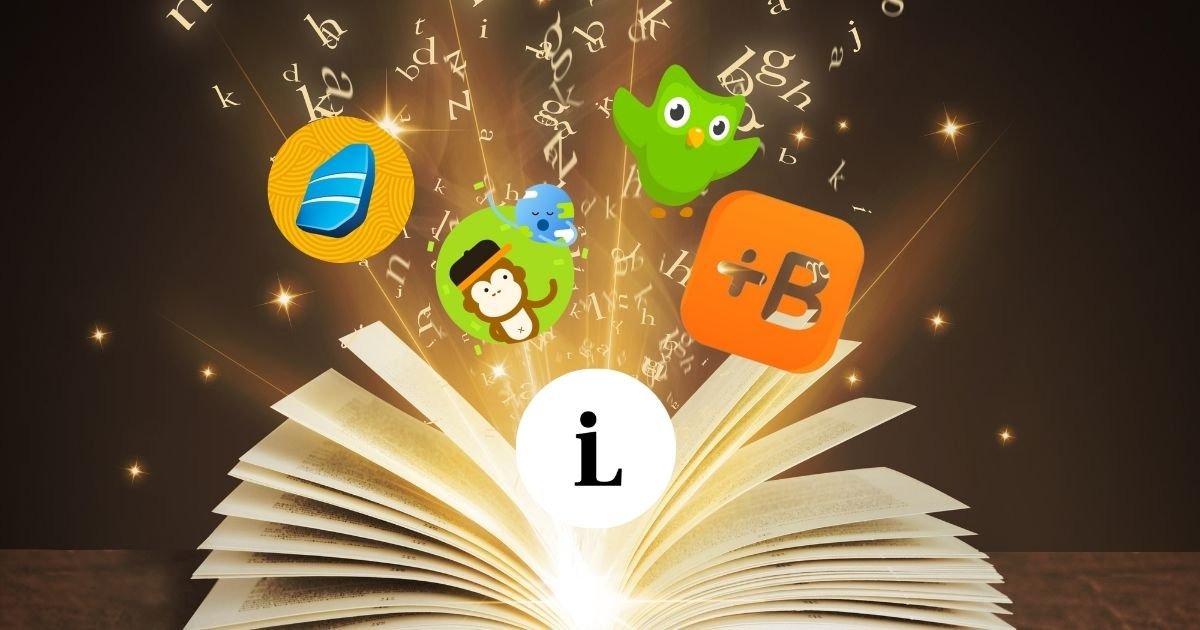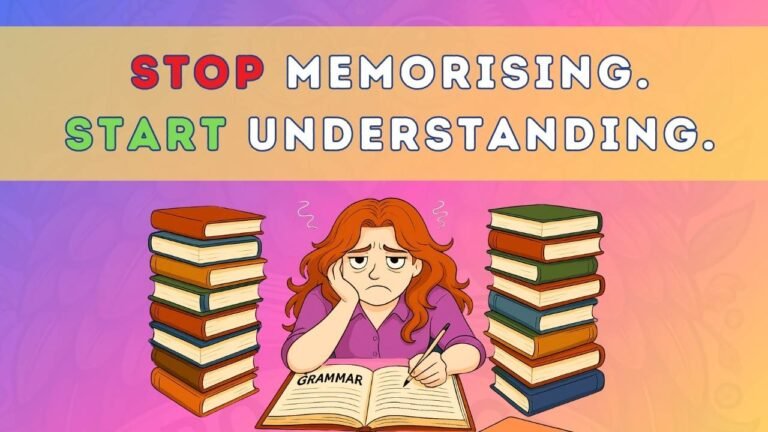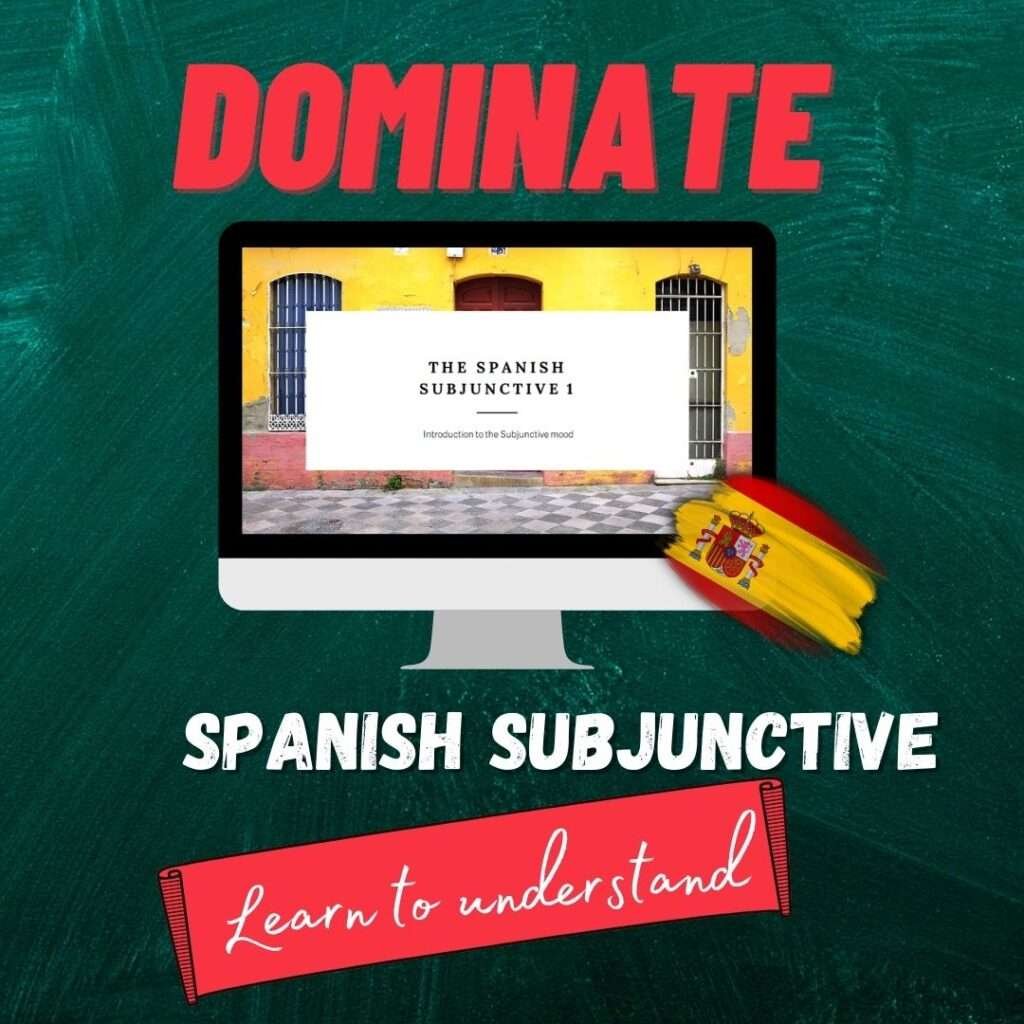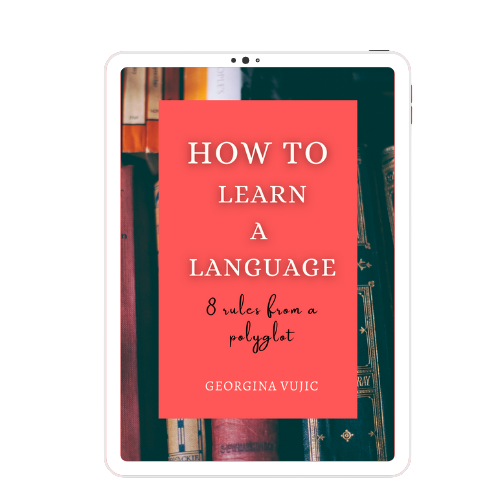The use and effectiveness of a myriad of language learning apps available on the market has been widely discussed in Facebook. The most frequently asked questions are: can I learn a language with this or that app? How long will it take me? What is the best app for learning a language? These questions are understandable if we consider there’s as much confusion about how to learn a language as there are apps.
We’ve covered these topics ourselves in our review of the Duolingo app and other well-known and some of the less known apps . We’ve talked about some of the common misconceptions about the apps, what it takes to learn a language, and how all of these apps operate and compare to each other.
Today, however, we’d like to elaborate on a topic we’ve only brushed upon so far and that isn’t talked about as often as these other questions.
We’ve already established that apps cannot be used as a sole means to an end, so it’s no secret that our opinion on apps isn’t a popular one. That’s not to say that there aren’t some good features that can support your learning journey, nor that apps should be avoided completely.
In this article, we’ll answer how you can incorporate apps into your learning journey in a way that’s benefitting instead of hindering your progress. After all, technology can be our friend, but only if we use it as a crutch and not as a replacement for legs.
So let’s start from the beginning.
WHAT IT TAKES TO LEARN A LANGUAGE AND WHY APPS DON’T WORK
We’ve chosen this as our starting point because we’ve found that pretty much all of the problems in the language learning community, including the controversy around apps, stem from the misconceptions about what it really takes to learn a language.
The reality is, most people don’t know the answer to this question, so they go out into the vast modern-era pond of misinformation to find it.
And giants like Duolingo or Rosetta Stone are more than happy to answer it with promises that are just too good to be true. Embracing apps as the best, and usually the only, way to learn a language ends either in frustration that inevitably comes when the results fail to show, or the complete opposite – believing themselves to be language experts due to the effect of false fluency.
Language learning community is riddled with these problems and the growing popularity of apps does nothing but exacerbate them.
Has this been your experience as well? Have you already learned another language previously or are you just starting and don’t know which way to turn? Do you believe in the popular immersion method or have you found that it doesn’t work as advertised? Do you know your own language learning aptitude? What are your strengths and weaknesses?
ROBOTIC LEARNING vs EVER-EVOLVING LANGUAGE
Before you get overwhelmed, we’d like to direct you to our article that will help you answers all of these questions and more. That will give you a better idea about how to learn a language and how long it might take you personally.
The short answer is: no, you cannot learn a language through apps alone.
Language learning is a complex process that requires, among many other things, a lot of time for the brain to adapt from one system to another, and for input to become knowledge; a lot of effort, targeted learning, but also humility.
It takes working equally and consistently on all four language skills: listening, writing, speaking and listening. Language skills are developed through four kinds of language activities: reception (listening and reading), production (spoken and written), interaction (spoken and written), and mediation (translating and interpreting).
It is absolutely impossible to reach high levels of fluency without developing all of these things equally. If learners report feeling “stuck”, “can’t progress”, “no confidence”, “just can’t start speaking”, this is usually a sign of one or more skills being underdeveloped.
With apps, learners won’t develop any of these skills to the full potential, and some of them, like written and oral expression, aren’t incorporated into lessons at all. Apps put a lot of emphasis on the input (listening and reading) and very little on output (speaking and writing) in a way that would develop your linguistic independence regardless of the context you find yourself in.
Most learners want their expression to sound as natural as possible, which clashes with how language learning apps teach. Language learning through apps is, by nature, robotic, stiff, co-dependent, and limiting, which is contrary to the nature of languages as living, organic, profoundly nuanced and ever-evolving systems that are highly defined by their complex societal, historical, cognitive, and geographical contexts.

Simply put, apps can only make you acquire passive knowledge of a language. Meaning, you can hear or read and understand limited language within specific narrow contexts and registers, but can’t hold a coherent, fluid, organic and highly accurate conversation yourself nor write effectively.
We all start learning a new language for different reasons, and while not all of us want to achieve academic level, it’s safe to say that most people want to reach a certain degree of fluency. That is, to be able to form our own sentences, express our feelings, thoughts and experiences in another language. Otherwise, what’s the point?
So if apps can’t make you learn a language, is there something they are good for? Are they all built the same or are there some that are better than the others? Let’s do a quick overview of the apps’ strong points before we go into how you can use best apply them.
WHAT ARE APPS’S STRONG POINTS?
While not everything that’s wildly popular is what it’s made out to be, a learner who’s self-aware and educated will always know how to cherry pick things that can be of use to them.
So what are the language learning apps good for?

(SOME) EXPOSURE TO THE TARGET LANGUAGE
If you’re a beginner, or you’re still just not sure if your target language is for you, or maybe your classes haven’t started yet and you’d like to get ahead, apps can be a good place to start.
That being said, some apps really are better than others.
Apps that are most frequently compared to each other are Duolingo, Rosetta Stone and Babbel.
We’ve tested all three and found that Babbel performs the best out of three.
Duolingo is more of a language game than a serious learning tool, and its lessons aren’t tailored by in-house specialists. On the other hand, Rosetta Stone is lacking in methodology and engagement due to its focus on and poor execution of the immersion method and repetitive exercises.
Babbel, however, provides more context through grammar and pronunciation explanations. Its lessons, although shorter, are more structured and exercises a lot more varied than Rosetta’s. Also, Babbel is one of the few apps that incorporates cultural context as well, which is another reason why it’s a good app to introduce you to a language.
Language learning apps can be a decent tester that will give you an idea of what the language is like before you commit to learning it. You will get to listen to it in an isolated manner, appropriated to your level. You also might familiarize yourself to most common sounds, acquire vocabulary and extract basic grammatical patterns
SCHEDULED REVISION AND ACCOUNTABILITY
What else can you use the apps for if you’re not just the beginner but let’s say, an intermediate learner?
We all know that accountability can be just as challenging as grasping complex grammar rules. We’re tired, there’s a new TV show on Netflix, we feel discouraged because we feel we aren’t progressing as much as we thought we would…The list goes on.
Ideally, this is where your tutor steps in to motivate you and push you forward. Even just the fact that there’s a class and you don’t want to feel embarrassed for not doing homework will probably spur you into action. But what if you’re self-taught or you’re on hiatus from regular classes? Some apps will either incessantly nag you, like Duolingo, or allow you to set up reminders yourself.
A great routine and organization are crucial in language learning, and apps perform well in helping you develop it.
If a reminder pops up for you to do your lesson or revision, you’re more likely to do it.
Why? It’s just basic human psychology. We all like the feeling of ticking tasks off, it makes us feel we’ve accomplished something and that, in turn, makes us feel good about ourselves. One of the main reasons why Duolingo is so popular is because it targets exactly that – that’s how it keeps you ‘hooked.’ The problem is when apps keep you hooked onto the gamification aspect and not learning itself.
This is why it’s important you know which apps are good for you and which aren’t.
PODCASTS
We’ve already established that apps don’t do a good job of making you work on all four learning skills. When it comes to listening skills, apps aren’t the best tool out there, but some are better than others. It mostly boils down to listening words and sentences and repeating them. Some apps have an integrated speech recognition system that corrects your pronunciation. More accurately, it lets you know that what you said was unintelligible and then you try again.
The answer to improving listening skills through apps lies – outside of the apps. Duolingo and Babbel, for example, have their own podcasts that you can listen to for free on all major podcast streaming services like Apple Podcasts and Spotify, if you don’t have the app itself installed.
We recommend podcasts for A2 level onwards. To a beginner, podcasts will, for the most part, sound like gibberish and the podcasts itself have to be extremely well targeted to accommodate a complete beginner.
Contrary to the popular belief that the apps promote, immersion method doesn’t work on adults who are beginners. You can only immerse yourself once you’ve grasped at least the basics of a language – only then can immersion through listening and reading be the most productive and effective. Additionally, unless you are under 7 – 10 years of age, you should be reading and listening actively and targetedly to get the most from your time and to develop actual productive linguistic skills. Otherwise, you will “pick up ” random phrases and vocabulary that without proper context and informed used, won’t serve for much but development of broken language.
All things considered however, as language learners ourselves, we understand that, sometimes, just hearing the language you wish to learn can be a great motivator. We get to hear clearly what we’re aspiring to achieve one day. For that purpose alone, podcasts are good for anyone and all.
VOCABULARY EXPANSION
Vocabulary is, hands down, the strongest point of language learning apps.
Most of them use flashcards, which are a great tool in itself, especially if we take into consideration that most people are visual learners. They also use various types of exercises to reinforce that knowledge.
Therefore, the biggest problem with apps – the fact that they only make you repeat pre-rehearsed content – is also its greatest advantage when it comes to vocabulary. Because, the truth is, there is no easy way to learn thousands of words that belong to a system completely different to ours. Spaced-out repetition and some more repetition is the only way to do it and that’s the thing apps do best.
However, be warned that just because language learning apps will make you remember words, does not mean they will teach you how to accurately and nuancedly use the same words in a myriad of diverse grammatical contexts that help us express our lives and ever-changing reality around us. This is an aspect of vocabulary learning that is often disregarded, but it’s one that makes a difference between a passive language learner and an active language user.
In addition, we could argue that there’s no better way to expand your vocabulary than through reading. Reading allows us to see words used in authentic and varied grammatical contexts. This is especially important for more advanced learners. We haven’t yet found an app that does advanced levels like B2, C1 and C2 well. They work best for beginners and beginner intermediate learners.
There’s simply too much that goes into progressing through such high levels of fluency for the apps to encompass, advanced reading being only one of them. Any app claiming otherwise, is in fact – being deceitful.
But is there something that works both ways? This is where we come to the Linga App (not sponsored).
Linga App allows you to read full books, extract words from them into your own personal dictionary and also do six types of exercises to reinforce that vocabulary. This allows learners to independently analyse original materials, observe vocabulary in varied contexts and extract it for further practice and application, making Linga App an amazing tool for more advanced learners.
HOW YOU CAN INCORPORATE APPS INTO YOUR STUDY PLAN
First of all, make sure you have a great study plan.
Do you have classes on a regular basis with a qualified tutor, with little to no interruptions? Does your tutor give you quality feedback and set up clear, functional objectives for each semester, as well as a plan how to achieve them? If you’re self-taught, do you book in hours dedicated to study and stick to it? Are you working on all four language skills?
Having a study plan in place doesn’t mean having conversational classes with native speakers who might not even be qualified to teach, or sitting down and learning some common phrases by heart. It means that you have a precisely mapped out methodology and materials to accompany it. This involves not only working on all four language skills, but knowing how to develop them, doing different types of exercises in correct order, correcting your errors off the back of good feedback, etc.
Once you’ve sorted all of this out, you can then start incorporating extracurricular activities to really propel your progress. So, let’s imagine the best case scenario. You have classes once or twice a week, and you also dedicate a couple of hours to homework and revision outside of it.
So where do apps come in?
LANGUAGE LEARNING APPS ARE MADE FOR THE IN-BETWEEN TIME

Let’s say, for example, that you have a long commute to work.
Bringing the textbook and dictionary on a tube or a bus probably isn’t convenient for you.
Maybe you find yourself thinking about how that subjunctive you only started learning in Spanish seems really tricky.
This is when you can open the app on your mobile and go to the lesson about subjunctive.
If the app is good, it’ll provide you with some guidance in the form of grammar tips. You’ll probably do some fill-in-the-blanks exercises, too. It won’t teach you the nuances of such complex grammar, but it will refresh the content in your head and help you practice less engaging aspects about language learning, like verb conjugations.
The tram/tube/bus has reached its destination and you’re happy you’ve used your time wisely. You’ll continue practicing and speaking with your tutor and/or classmates, receive correction, get written assignments where you’ll have to apply that knowledge and once again, receive necessary correction from your tutor. In between the lessons, when you’re either commuting, have some down time, or simply too tired to sit at the desk and study – you’ll open the app again, do some exercises, feel good about the green tick, and read or listen about culture.
But what if you drive to work or work from home?
Then listening to podcasts some of the apps provide might be right up your alley, depending on the type of learner you are.
A lot of people can drive and even work while listening to podcasts/audiobooks, while for others it can be difficult to manage two tasks at the same time, especially if one of them is in another language.
It also depends on the type of work you do.
A lot of people would argue, and the apps’ PR teams know this, that they simply can’t carve out the time in their busy schedules for language learning. Commute might actually be the only time they can study, so apps seem like the perfect solution.
If that really is the case, then the best you can do is know and accept the apps for what they are, and not for what they’re advertised as. They will not make you an independent user of a language.
They might teach you some words, phrases and a bit of grammar, but your knowledge will remain passive if you don’t put in the work outside of the app. If your goal is to just be able to understand the language to an extent, have a list of set phrases to use for ordering at a restaurant to make your upcoming trip easier, or because you want to understand your in-laws, then that’s fine, too.
Most people, however, want to reach a certain degree of fluency and the problem is – apps promise them they’ll be able to do just that, when that couldn’t be farther from truth.
LANGUAGE LEARNING APPS AS AN ADDITIONAL TOOL
Language learning apps, just like books, magazines, radio or any type of resource you might find outside of your classes, are just that – an extra resource that can aid your learning.
And that’s no small feat.
It is usually the students who look for these extra resources, extra work outside of the classroom, that progress much faster than students who strictly stick to textbook and homework. It’s that extra push that makes them fall in love with the language and culture and take it to a completely new level. That can only happen if you really dive deep into the language and for that reason, additional tools are priceless.
That’s why we’re in no way discouraging you from using the apps – just know what you’re using them for and don’t fall for the grandiose advertisement. After all, you can learn a language without the app, but you can’t learn it without a study plan based on proven methodologies.
There are many misconceptions about what it takes to learn a language nowadays and, unfortunately, the misrepresentation of the use and effectiveness of language learning apps has become part of the problem.
We live in a fast-moving world where being able to slow down has become true privilege. But as the saying goes, all good things take time, and learning a language is no different.
Nevertheless, being knowledgeable about what it takes to learn a language means that you can also recognize the things that can be of use to you and discard the parts you know are wrong. Building up vocabulary through repetition is definitely apps’ strongest point. They can also introduce a complete beginner to a language, and some of the better apps like Babbel can provide cultural context and podcasts as well. The possibility of scheduling revision through the app is appealing to most, as we know how difficult accountability can be.
We’ve established that apps can be a useful additional tool, but only if you use them as such: a complementary part to your study plan. Apps are great for brushing upon your language learning in spare moments between regular lessons, but they will not make you fluent on their own.
They don’t focus on all the necessary language skills (reading, listening, speaking, writing) nor do they have a proper methodology that you need in order to use the language independently.
JOIN RLC CLUB DE LECTURA

Having discussed the usefulness of reading for building your word bank, we’d like to encourage you to join our Spanish Book Club. Expand your vocabulary, learn about culture and history of Spain and Latin America through literature and join vivid discussion with our Hispanic lecturer and other students.
We’re firm believers in going above and beyond when working on your goals, so we invite you to challenge yourself with all the extra content that you can – beside the apps.
In words of Spanish writer Arturo Pérez-Reverte:
‘Nuestra patria es la lengua española.’

















